
Exploring the Historic Charm of Birmingham's Jewellery Quarter
Welcome to Birmingham's Jewellery Quarter, a vibrant and historic neighbourhood renowned for its rich heritage and unique charm. This area, dating back over 250 years, is at the heart of the city's jewellery industry, making it one of the largest and most significant jewellery centres in Europe. As you stroll through the cobbled streets, you'll encounter over 500 jewellery businesses, from traditional workshops to contemporary boutiques, offering a dazzling array of treasures. The Jewellery Quarter is not just about jewellery; it's a cultural hub with an array of attractions to explore. Visit the Museum of the Jewellery Quarter to get an insider's view of the craftmanship and history that define this area. The Pen Museum offers a fascinating dive into the world of writing instruments, while the RBSA Gallery showcases local artistic talent. For a touch of history, the Key Hill Cemetery and Warstone Lane Cemetery are serene spots that tell poignant stories of the past. Dining in the Jewellery Quarter is a treat for the senses. From cozy cafes to gourmet restaurants, there's something to satisfy every palate. Don't miss out on the local pubs, where you can enjoy a pint in a historic setting. The neighbourhood also hosts a variety of events throughout the year, including festivals, markets, and live performances, ensuring there's always something happening to engage visitors of all ages.
Local tips in Jewellery Quarter
- Visit on a weekday to see jewellers at work in their studios.
- Wear comfortable shoes as the area is best explored on foot.
- Take a guided tour to learn about the rich history and hidden gems of the quarter.
- Check out the local event calendar for unique happenings during your visit.
- Stop by the Pen Museum for a hands-on experience with historic writing tools.
Exploring the Historic Charm of Birmingham's Jewellery Quarter
Welcome to Birmingham's Jewellery Quarter, a vibrant and historic neighbourhood renowned for its rich heritage and unique charm. This area, dating back over 250 years, is at the heart of the city's jewellery industry, making it one of the largest and most significant jewellery centres in Europe. As you stroll through the cobbled streets, you'll encounter over 500 jewellery businesses, from traditional workshops to contemporary boutiques, offering a dazzling array of treasures. The Jewellery Quarter is not just about jewellery; it's a cultural hub with an array of attractions to explore. Visit the Museum of the Jewellery Quarter to get an insider's view of the craftmanship and history that define this area. The Pen Museum offers a fascinating dive into the world of writing instruments, while the RBSA Gallery showcases local artistic talent. For a touch of history, the Key Hill Cemetery and Warstone Lane Cemetery are serene spots that tell poignant stories of the past. Dining in the Jewellery Quarter is a treat for the senses. From cozy cafes to gourmet restaurants, there's something to satisfy every palate. Don't miss out on the local pubs, where you can enjoy a pint in a historic setting. The neighbourhood also hosts a variety of events throughout the year, including festivals, markets, and live performances, ensuring there's always something happening to engage visitors of all ages.
Iconic landmarks you can’t miss
The Coffin Works
Explore the fascinating history and craftsmanship of the coffin-making industry at The Coffin Works, Birmingham's unique museum experience.
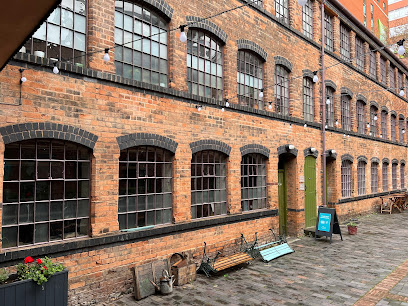
Pen Museum
Explore the fascinating world of writing instruments at the Pen Museum, a unique Birmingham attraction celebrating the heritage of pens and writing.
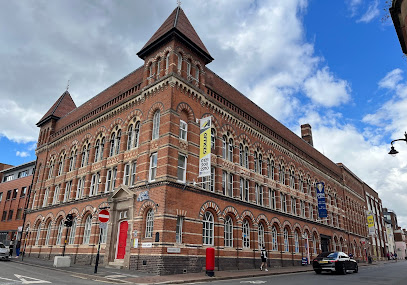
Museum of the Jewellery Quarter
Step into a perfectly preserved jewellery workshop and discover Birmingham’s sparkling heritage through immersive guided tours and rich craftsmanship history.

J. W. Evans Silver Factory
Explore the historic J. W. Evans Silver Factory in Birmingham, where artistry meets heritage in a captivating journey through silver craftsmanship.
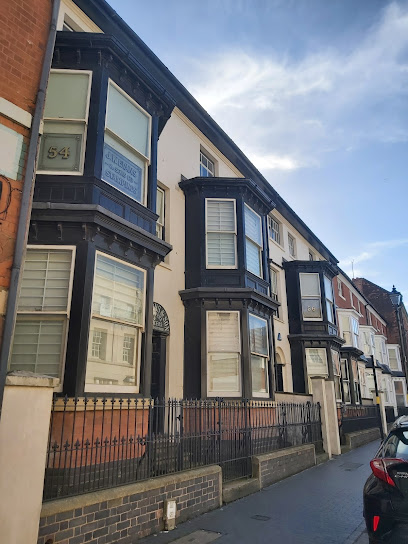
Chamberlain Memorial
A striking neo-Gothic monument in Birmingham honoring Joseph Chamberlain’s legacy of public service and civic leadership.
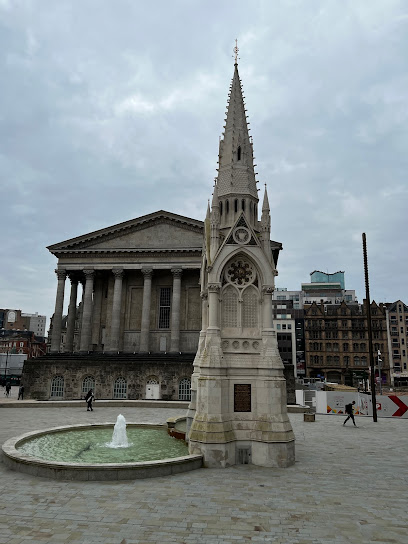
Chamberlain Clock
Iconic Edwardian cast-iron clock tower marking Joseph Chamberlain’s legacy at the heart of Birmingham’s Jewellery Quarter.
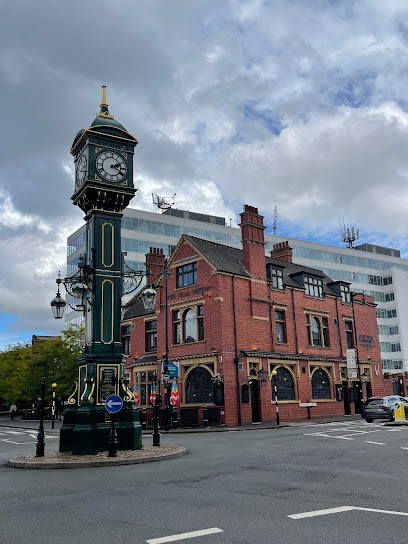
The Jewellery Quarter
Explore Birmingham's historic Jewellery Quarter, a vibrant district filled with artisan shops, exquisite craftsmanship, and rich heritage.
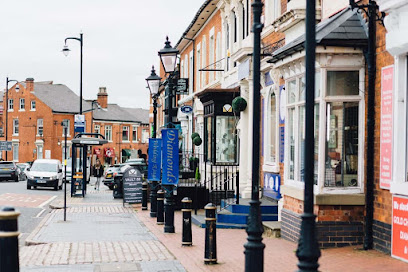
Gem Buildings
Historic Gem Buildings on Key Hill showcase Birmingham's rich jewelry industry heritage and early 20th-century industrial architecture.
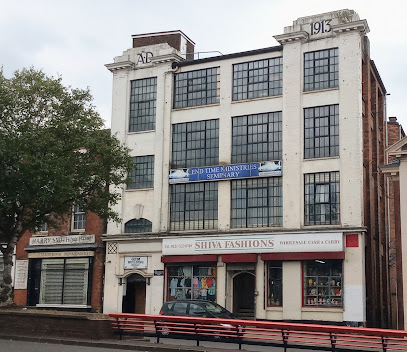
Jewellery Quarter
Explore the historic Jewellery Quarter in Birmingham, where craftsmanship meets culture in a vibrant, artistic atmosphere filled with unique shops and dining options.
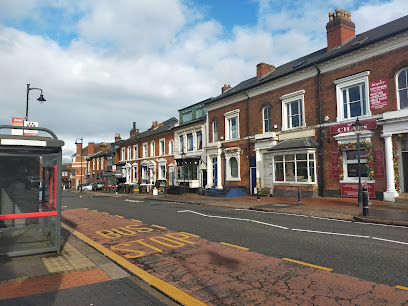
New hall Hill - Historical Signature!
New Hall Hill: The historic stage where Birmingham’s political reform movement ignited and transformed British democracy.
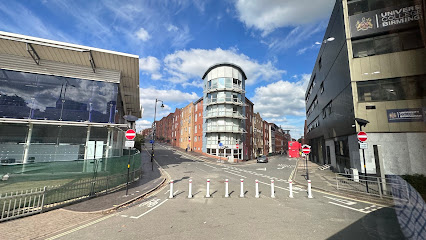
Unmissable attractions to see
Museum of the Jewellery Quarter
Explore a time capsule jewellery workshop and discover Birmingham’s rich 200-year heritage of craftsmanship in the heart of the Jewellery Quarter.
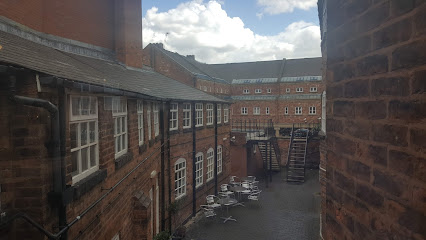
New hall Hill - Historical Signature!
Explore the historical charm of New Hall Hill in Birmingham, a captivating tourist attraction rich in heritage and local culture.

Essential places to dine
Pasta Di Piazza
Authentic Italian dining with generous portions and warm service in Birmingham’s historic Jewellery Quarter.
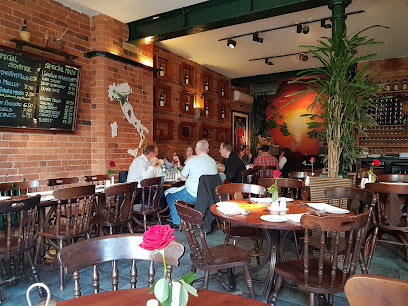
The Button Factory
A stylish blend of industrial heritage and modern dining, The Button Factory offers vibrant food, drinks, and rooftop vibes in Birmingham’s Jewellery Quarter.
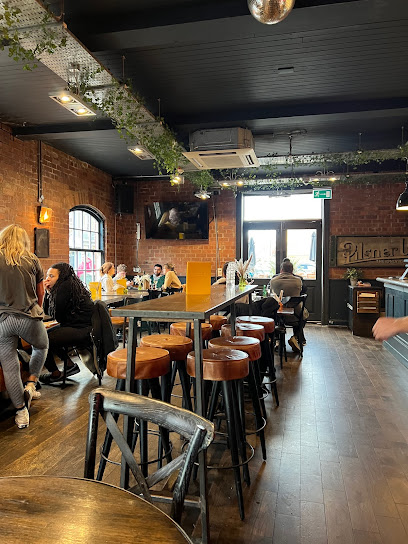
Cucina Rustica
Experience authentic Italian flavors crafted with passion in Birmingham’s historic Jewellery Quarter at Cucina Rustica.
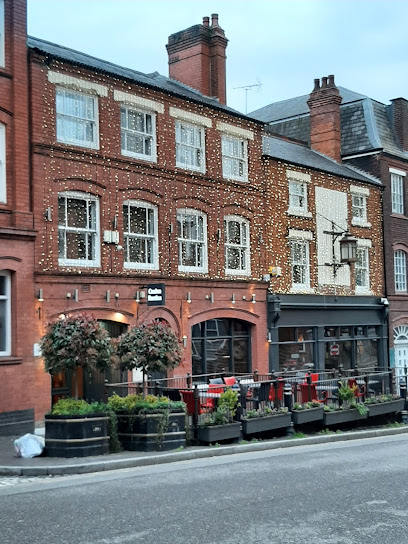
Decorum Restaurant Birmingham
Elegant steakhouse in Birmingham’s Jewellery Quarter blending refined dining with stylish ambiance and cultural charm.
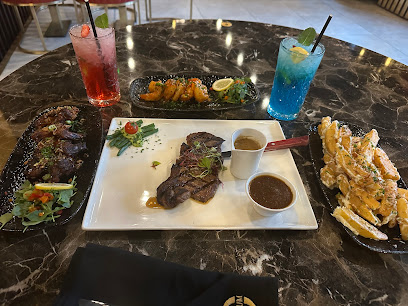
The Rolling Mill
A vibrant gastropub in Birmingham’s Jewellery Quarter blending traditional British charm with modern culinary delights and lively atmosphere.
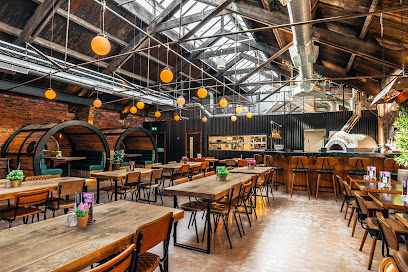
Locanta italian restaurant
Authentic Italian dining in a historic Victorian setting with fresh seafood, handmade pasta, fine wines, and live music in Birmingham’s city centre.
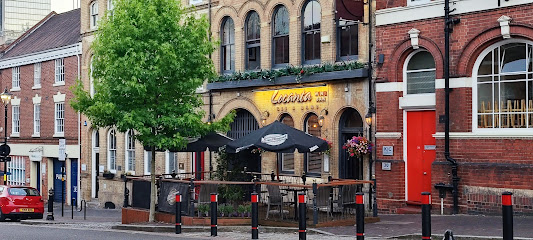
The Wilderness
Edgy fine dining in Birmingham’s Jewellery Quarter with inventive modern European menus set in a striking industrial-chic venue.
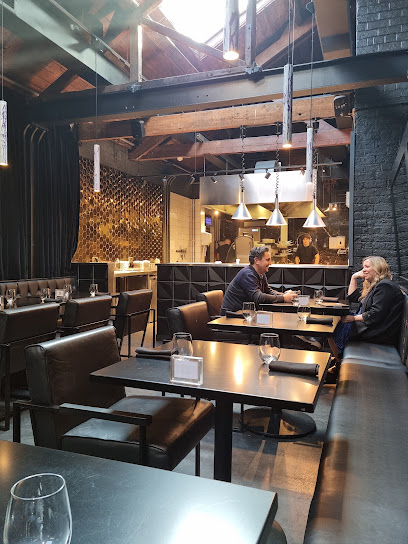
Cappadocia Restaurant
Authentic Turkish flavors and warm hospitality await you in Birmingham’s Cappadocia Restaurant on Frederick Street.
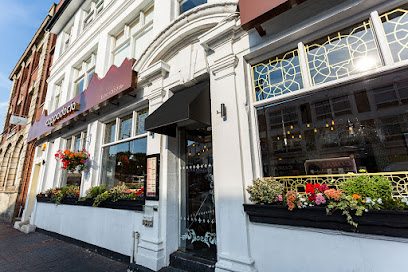
Kopitiam
Discover authentic Malaysian street food and warm family hospitality in Birmingham’s vibrant Jewellery Quarter at Kopitiam.
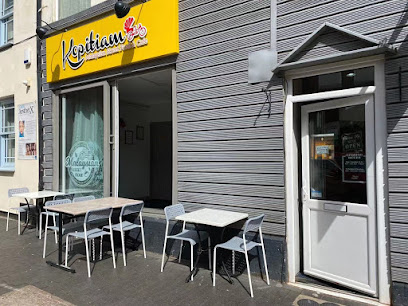
Somewhere in Brum
A vibrant bar and brunch spot in Birmingham’s Jewellery Quarter, blending diverse cuisine with a lively social atmosphere.
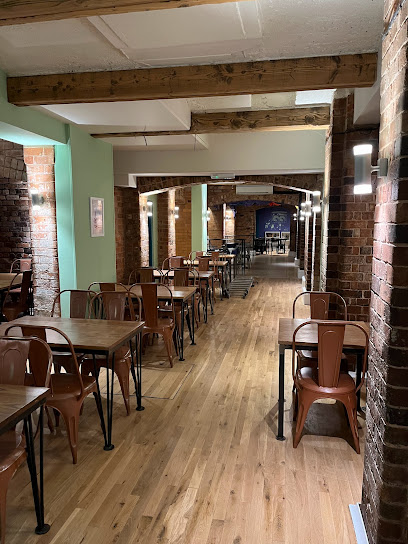
Markets, malls and hidden boutiques
Design Centre
Family-crafted diamonds and luxury watches in Birmingham's historic Jewellery Quarter since 1977—timeless elegance for life's milestones.
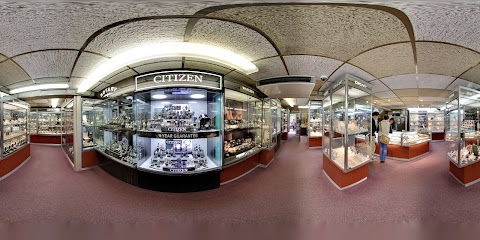
Top Jewellery UK
Discover bespoke brilliance in Birmingham's Jewellery Quarter at Top Jewellery, where family expertise crafts diamonds, gold, and silver into timeless treasures.
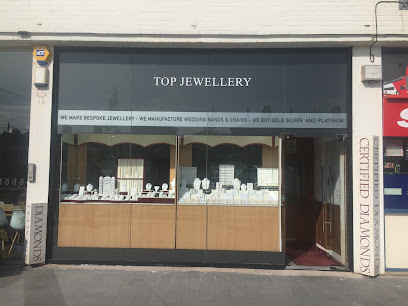
Artfull Expression
Discover independent jewelry artistry in Birmingham's Jewellery Quarter at Artfull Expression, where unique handcrafted designs blend historic craft with modern flair.
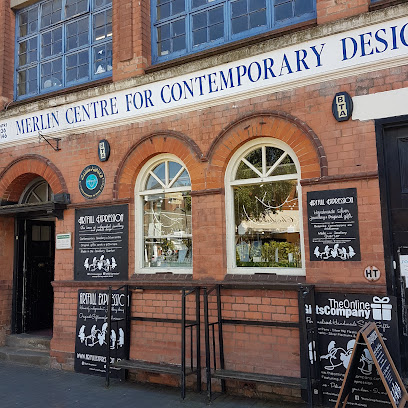
A&N Jewellery
Discover family-crafted silver treasures and bespoke brilliance in Birmingham's legendary Jewellery Quarter, where 50 years of expertise meets timeless elegance.

Adamas Antique Jewellery
A boutique Jewellery Quarter shop offering curated antique and estate jewels with specialist appraisal and bespoke care.
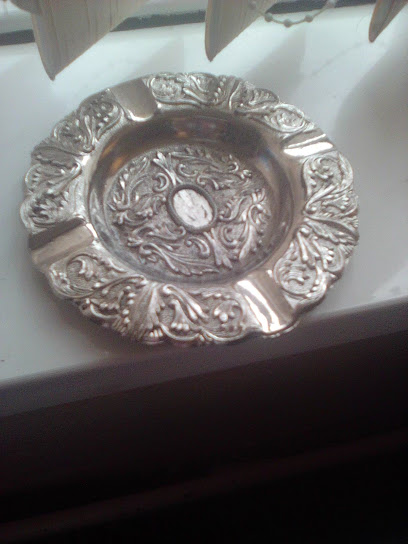
The Jewellery Quarter Birmingham
Explore Birmingham's historic Jewellery Quarter, where artistry meets modern charm in a vibrant shopping and dining experience.
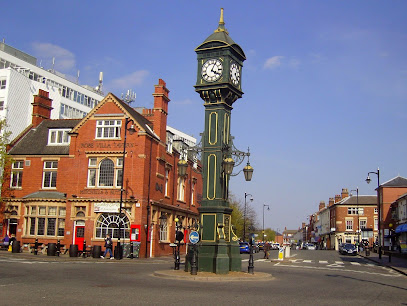
Ivy and Rose Gift Shop
Discover handmade UK treasures at Ivy and Rose, Birmingham's Jewellery Quarter boutique for unique jewelry, candles, and artisanal gifts from local makers. (162 characters)
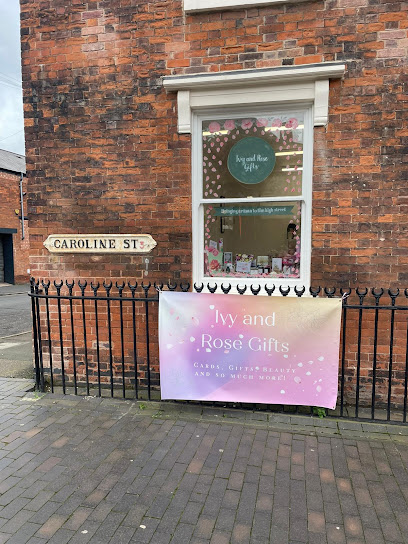
Quarter Jewellery
Independent jeweller on Warstone Lane offering commissions, valuations and attentive, workshop‑minded service in the heart of Birmingham’s Jewellery Quarter.
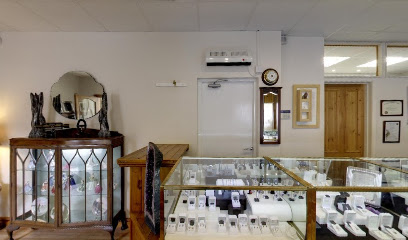
The Jewellery Quarter
Discover authentic jewellery craftsmanship at 19 Vyse Street, heart of Birmingham's historic Jewellery Quarter where skilled artisans shape 40% of the UK's finest pieces amid a vibrant maker's haven.
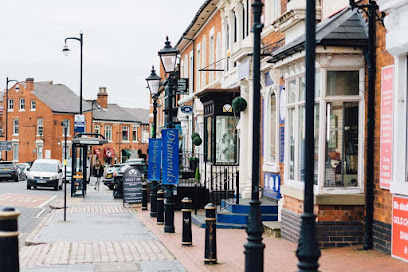
Buff Jewellery
Timeless minimalist jewellery handcrafted in Birmingham's Jewellery Quarter—personalised birthstone designs blending sentiment, subtlety, and modern British elegance for everyday sparkle.
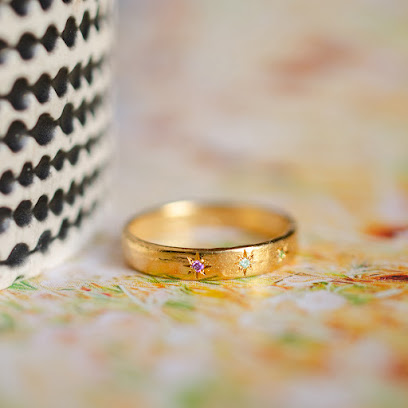
SACET
Ethical elegance awaits at SACET, Birmingham's sustainable jewellery gem in the heart of the Jewellery Quarter—where timeless craft meets modern conscience.
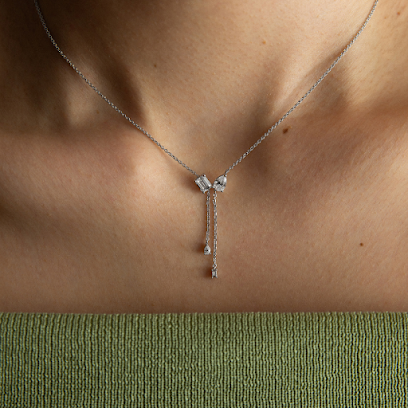
Fine Jewellery Collections & Bespoke Design Service
Discover bespoke brilliance in Birmingham's Jewellery Quarter, where custom gems and fine collections craft heirlooms with personal stories etched in gold.
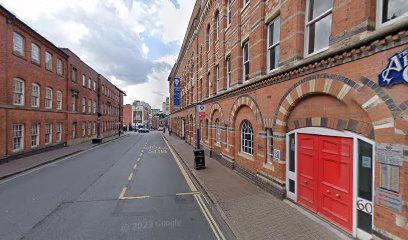
Arnett Creations - Unique Quality Jewellery
Discover bespoke Sterling Silver and hallmarked gold jewellery in Birmingham's Jewellery Quarter, where expert craftsmanship meets personalized service at Arnett Creations.
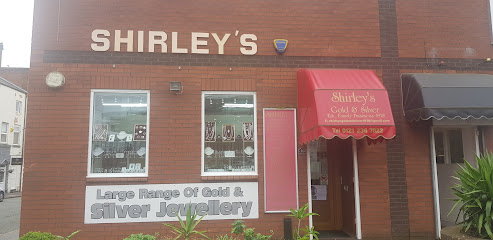
Essential bars & hidden hideouts
Actress & Bishop
Two floors, live music every night and a split personality — cosy downstairs, sweaty upstairs — in the Jewellery Quarter.
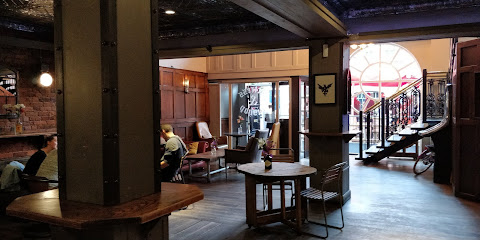
The Button Factory
Exposed brick pub in Jewellery Quarter with Robata grill feasts, rooftop terrace vibes, and bottomless brunches amid Birmingham's creative heartbeat.
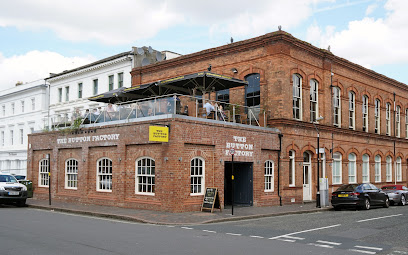
The Rose Villa Tavern
Classic British pub in Birmingham's Jewellery Quarter, serving hearty meals, diverse drinks, and warm hospitality amid historic streets.
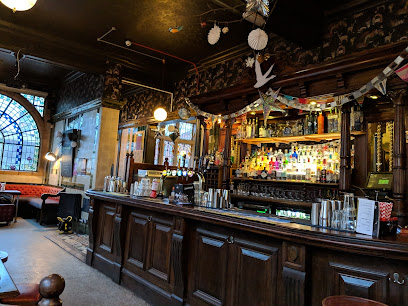
The Red Lion
Traditional Hockley pub fusing heritage, modern art, and hearty British fare in Birmingham's Jewellery Quarter gem on lively Warstone Lane.
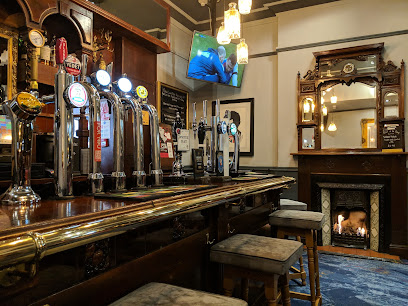
The Jewellers Arms
Traditional Birmingham boozer in the Jewellery Quarter: exceptional real ales, hearty pies, and cosy fireside chats since the 1830s.
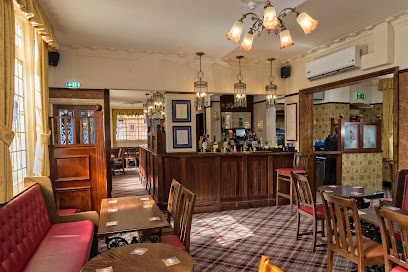
1000 Trades
Craft haven in Birmingham's Jewellery Quarter: historic listed building pouring evolving beers, natural wines, and local residency eats amid art and music.
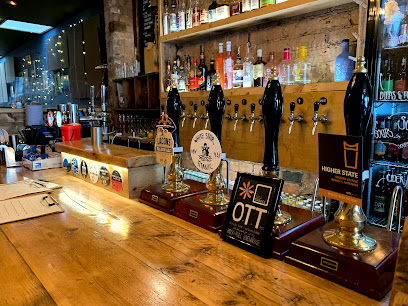
Queen's Arms birmingham
Traditional Jewellery Quarter pub pouring fine ales in a quirky, welcoming space with games, books, and hearty grub amid Birmingham's historic heart. (162 characters)
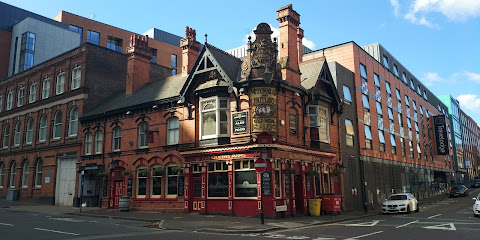
The Pig & Tail
Victorian charm with a punchy, colourful gastropub vibe — British small plates, rotating craft beer and lively evenings in the Jewellery Quarter.
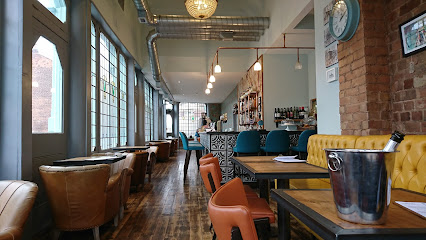
40 St Paul's
Discover Birmingham's hidden gin speakeasy: 100+ global varieties, intimate vibes, and masterful cocktails in the heart of the Jewellery Quarter.
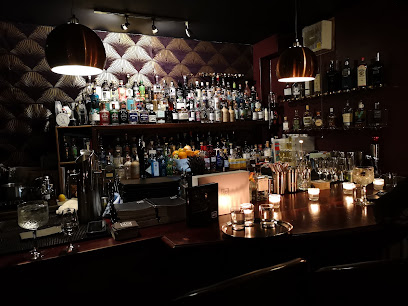
Lucky7
Precision mixology meets playful vibes in Birmingham's Jewellery Quarter—a relaxed haven for cocktail lovers seeking crafted perfection.
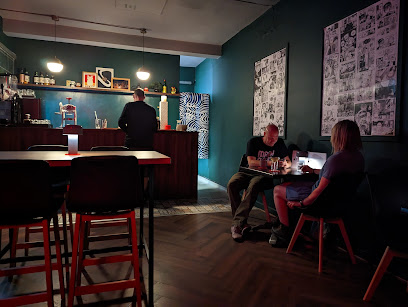
Local Phrases
-
- HelloAlright mate
[al-right mayt] - GoodbyeTa-ra
[ta-rah] - YesAye
[aay] - NoNah
[nah] - Please/You're welcomeCheers
[cheers] - Thank youTa
[ta] - Excuse me/SorryPardon
[par-dun] - How are you?You alroit?
[you al-right] - Fine. And you?Sound. And you?
[sownd. and you] - Do you speak English?Do ya speak English?
[doo ya speak ing-glish] - I don't understandI ain't got a clue
[ai-nt got a kloo]
- HelloAlright mate
-
- I'd like to see the menu, pleaseShow us the menu, ta
[sho us the menu ta] - I don't eat meatI don't do meat
[ai doo-nt doo meet] - Cheers!Cheers!
[cheers] - I would like to pay, pleaseCan I settle up, ta
[kann ai set-ul up ta]
- I'd like to see the menu, pleaseShow us the menu, ta
-
- Help!Help!
[help] - Go away!Clear off!
[clur off] - Call the Police!Ring the Old Bill!
[ring the old bill] - Call a doctor!Get the quack!
[get the kwak] - I'm lostI'm all turned around
[ai-m all turnd a-rownd] - I'm illI'm poorly
[ai-m pawr-lee]
- Help!Help!
-
- I'd like to buy...I wanna buy...
[ai wanna buy] - I'm just lookingJust browsing, mate
[just brow-zing mayt] - How much is it?How much for that?
[how much for that] - That's too expensiveThat's a bit steep, that
[thats a bit steep that] - Can you lower the price?Can you do it for less?
[kan you doo it for less]
- I'd like to buy...I wanna buy...
-
- What time is it?What's the time?
[wuts the time] - It's one o'clockIt's one
[its one] - Half past (10)Half ten
[haff ten] - MorningMornin'
[mornin] - AfternoonArvo
[ar-vo] - EveningEvenin'
[even-in] - YesterdayYesterdee
[yester-dee] - TodayToday
[today] - TomorrowMornmorrow
[morn-morrow] - 1One
[won] - 2Two
[too] - 3Three
[three] - 4Four
[for] - 5Five
[fiv] - 6Six
[siks] - 7Seven
[sev-un] - 8Eight
[ayt] - 9Nine
[nine] - 10Ten
[ten]
- What time is it?What's the time?
-
- Where's a/the...?Where's the...?
[wheres the] - What's the address?What's your gaff?
[whuts your gaf] - Can you show me (on the map)?Can you point me in the right direction?
[kan you point me in the rite direction] - When's the next (bus)?When's the next bus due?
[whens the next bus doo] - A ticket (to ....)A fare to ...
[a fair to]
- Where's a/the...?Where's the...?
History of Jewellery Quarter
-
The Jewellery Quarter in Birmingham began to take shape in the 16th century, initially serving as a hub for goldsmiths and other artisans. The area's strategic location, close to the city center and the canal network, enabled the development of a thriving trade in precious metals and stones. By the late 18th century, the quarter had established itself as a major center for jewellery manufacturing.
-
The Industrial Revolution, which swept through Birmingham in the 18th and 19th centuries, significantly transformed the Jewellery Quarter. The introduction of new manufacturing techniques and machinery allowed for mass production, leading to an explosive growth in the number of workshops and jewellers. The quarter became home to over 1,000 businesses by the mid-1800s, contributing to Birmingham's reputation as the 'City of a Thousand Trades.'
-
In 1773, the Birmingham Assay Office was established to regulate the quality of precious metals produced in the city. This institution played a crucial role in ensuring that the jewellery produced met high standards, thereby boosting consumer confidence. The Assay Office remains an integral part of the Jewellery Quarter today, symbolizing the area’s commitment to excellence in craftsmanship.
-
The two World Wars brought significant challenges to the Jewellery Quarter, as many workshops were repurposed for war efforts, and production slowed. Post-war economic difficulties led to a decline in the jewellery industry during the mid-20th century. Many artisans left the area, and the once-bustling quarter faced a period of neglect.
-
In the late 20th and early 21st centuries, the Jewellery Quarter underwent significant regeneration efforts. The area was recognized for its rich industrial heritage, leading to the preservation of historic buildings and the establishment of new businesses. Today, the quarter is celebrated not only for its jewellery trade but also for its vibrant arts scene, cultural festivals, and as a popular destination for tourists and locals alike.
Jewellery Quarter Essentials
-
The Jewellery Quarter is easily accessible from various parts of Birmingham. From the city centre, you can take the Birmingham City Centre tram towards Wolverhampton and disembark at the Jewellery Quarter stop. Alternatively, local buses, including the 8 and 9 routes, connect the Jewellery Quarter with other neighbourhoods. The nearest train station is Jewellery Quarter Station, which is a short walk from the main attractions.
-
The Jewellery Quarter is compact and best explored on foot. However, there are several public transport options available. The tram and bus services operate frequently, and for those who prefer cycling, there are dedicated bike lanes and rental stations throughout the area. Taxis and rideshare services like Uber are also widely available for longer distances or late-night travel.
-
The Jewellery Quarter is generally safe for tourists during the day and evening. However, it's advisable to avoid poorly lit areas at night, particularly around the outskirts of the neighbourhood. Stay vigilant in crowded places, as pickpocketing can occur. Areas such as parts of Hockley may have higher crime rates, so exercise caution and remain aware of your surroundings.
-
In case of an emergency, dial 999 for police, fire, or medical assistance. The nearest hospital is the Birmingham City Hospital, located a short distance from the Jewellery Quarter. It is also recommended to have travel insurance that covers emergencies. For minor health issues, local pharmacies are available for over-the-counter medication.
-
Fashion: Do wear comfortable shoes for walking, and dress appropriately for the weather. Don't wear overly flashy or expensive jewellery to avoid attracting unwanted attention. Religion: Do be respectful of local customs, especially when visiting places of worship. Public Transport: Do offer your seat to elderly or disabled individuals. Don't eat or drink on public transport. Greetings: Do greet locals with a smile and a friendly 'hello.' Don't be overly familiar unless invited. Eating & Drinking: Do try local delicacies and beverages in the area. Don't waste food or be overly loud in restaurants.
-
To experience the Jewellery Quarter like a local, explore the independent shops and artisan workshops that showcase the area's rich history in jewellery making. Visit the local markets for fresh produce and handmade goods. Attend one of the many festivals or events held throughout the year, which often feature local crafts and food. Engage with local artisans, as many are happy to share their stories and processes. Don't forget to check out the local pubs for a taste of Birmingham's craft beer scene.
Nearby Cities to Jewellery Quarter
-
Things To Do in Stratford-upon-Avon
-
Things To Do in Nottingham
-
Things To Do in Oxford
-
Things To Do in Chester
-
Things To Do in Sheffield
-
Things To Do in Manchester
-
Things To Do in Bristol
-
Things To Do in Liverpool
-
Things To Do in Bath
-
Things To Do in Cardiff
-
Things To Do in Cambridge
-
Things To Do in Windsor
-
Things To Do in Leeds
-
Things To Do in London
-
Things To Do in York













